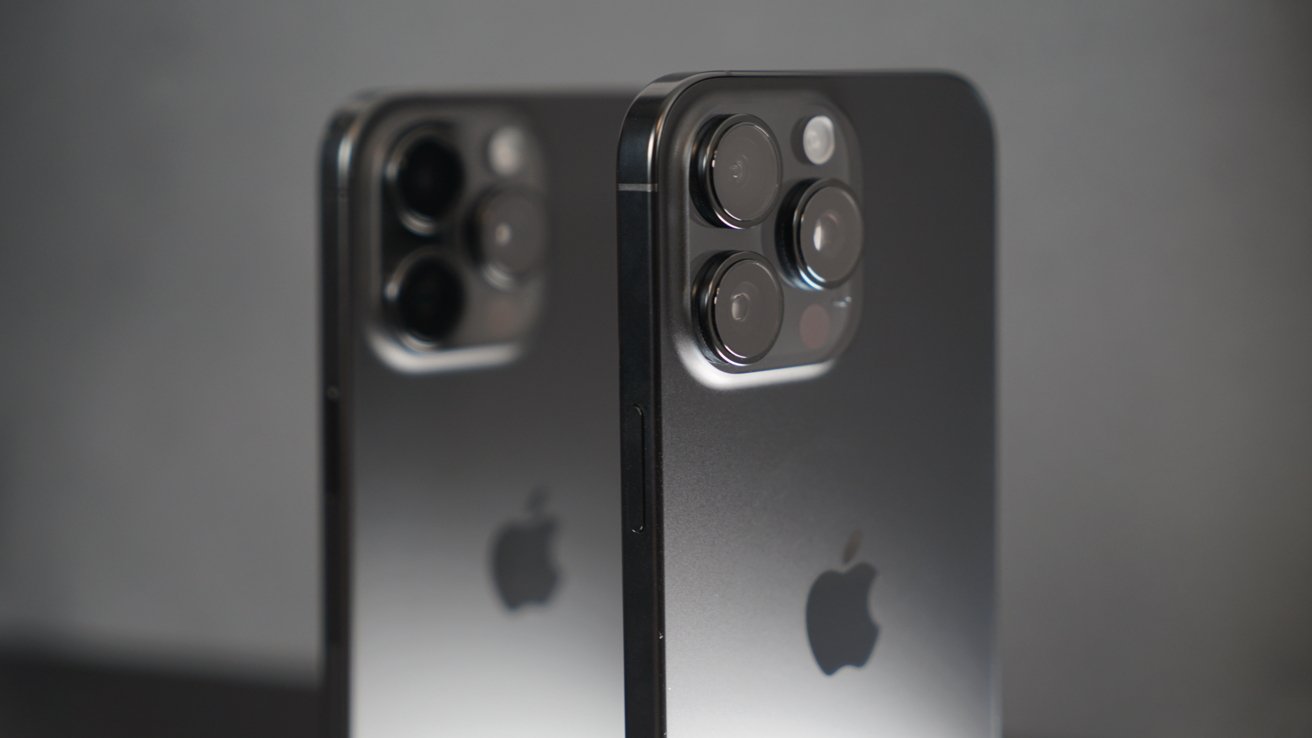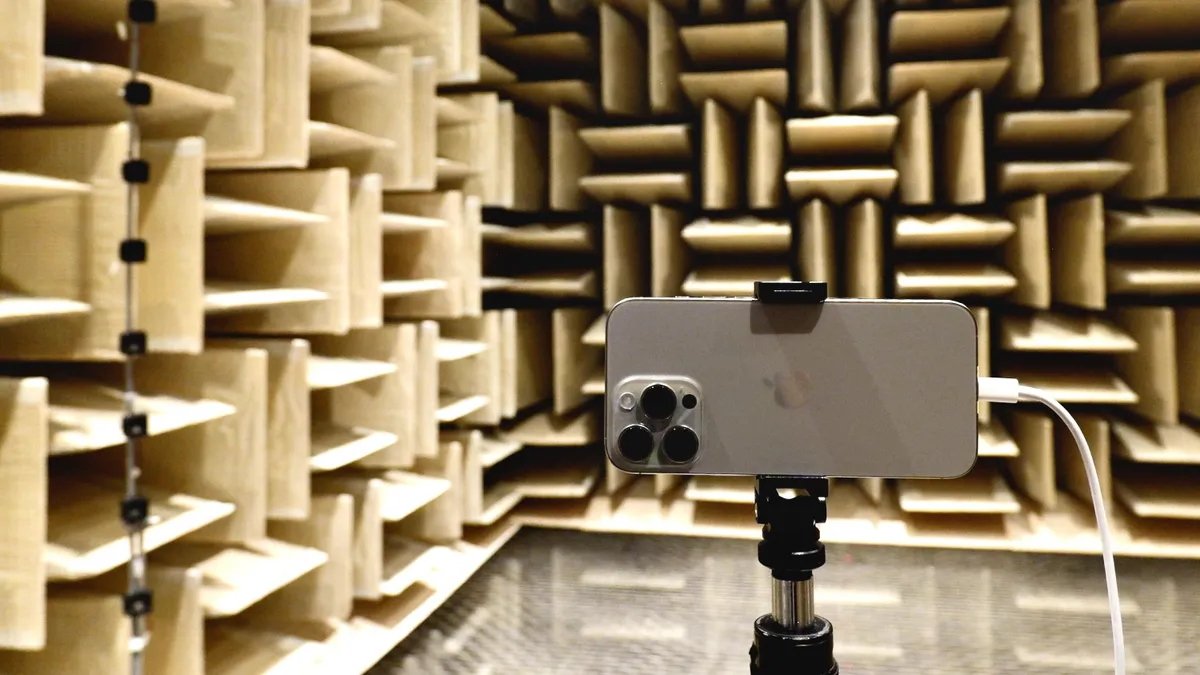Apple's iPhone 16 Pro is a leap forward in video and audio innovation, and the secret lies in its cutting-edge testing labs. Here's how Apple tests new iPhones.

The iPhone 15 Pro and iPhone 16 Pro
The iPhone 16 Pro elevates Apple's standard for smartphone photography and video to new heights. It's equipped with cutting-edge features such as 4K slow-motion recording and advanced audio tools.
At the heart of Apple's iPhone 16 Pro advancements is a meticulously designed testing process. The labs include a long-wave anechoic chamber where microphones are tested for audio clarity and a Dolby Atmos theater dedicated to fine-tuning video playback.
In a new report from CNET, Patrick Holland got to tour Apple's camera labs where iPhone cameras, microphones, and video playback are tested and refined.
Transforming sound in Apple's anechoic chamber
Inside a foam-covered anechoic chamber at Apple's Cupertino headquarters, engineers test the iPhone 16 Pro's microphones. The room, devoid of echoes, ensures that every iPhone microphone captures sound with clarity.
The phone's four microphones are engineered to mimic professional setups using advanced machine learning and a feature called Audio Mix. Audio Mix allows users to adjust sound quality, and it's available across the iPhone 16 lineup.

Apple has an anechoic chamber for testing iPhones. Image credit: Celso Bulgatti/CNET
"The iPhone is such a ubiquitous recording device and gets used in so many different environments that we want to make sure that we're able to capture the memory that our users are trying to capture in the truest form," explained Ruchir Dave, senior director, acoustics engineering at Apple.
Apple's goal is to make audio recording effortless yet powerful. Users can rely on default settings for great sound or dive into editing for complete creative control.
The company doesn't rely solely on experts for audio tuning. In specialized soundproof rooms, everyday people test audio playback, comparing tracks and providing feedback. This approach ensures the iPhone's audio capabilities resonate with a diverse audience, not just audio professionals.
"It is not just Ruchir with his golden ear that's sitting in there and dictating how it should sound," said Francesca Sweet, director of iPhone product marketing at Apple. "We really want to make sure that anyone who's taking advantage of this feature [Audio Mix] is going to appreciate it and enjoy it."
Mastering video playback & slow-motion capture
For video enthusiasts, the iPhone 16 Pro offers excellent capabilities. Apple's video verification lab, equipped with a Dolby Atmos theater, ensures videos look great in any environment.
Engineers test playback under varying lighting conditions, simulating everything from a sunny day to a dimly lit room. The attention to detail ensures consistency, whether you're watching a movie or your latest recording.
For video enthusiasts, the iPhone 16 Pro offers excellent capabilities
"We use this theater to tune the video playback experiences so that when you play back these videos in a dark room, in an office environment, or even under the sun, you get the same perceptual experience you will get as if you're watching a video in the theater," Sean Yang, director of video engineering at Apple, explained.
Slow-motion video, captured at 4K resolution and 120fps, is a headlining feature for the iPhone 16 Pro models. Previous iPhone Pro models, such as the iPhone 15 Pro, were limited to 4K recording at up to 60fps.
Apple's engineering enables the phone to process nearly a billion pixels per second, resulting in detailed, artifact-free frames that improve cinematic storytelling.
The company employs a similar approach to perceptual testing for audio, involving people sharing their feedback on videos. Testing ensures that the final product reflects a diverse range of opinions rather than being solely based on the preferences of a single person.
Democratizing content creation
Apple has put professional-grade filmmaking tools in the hands of everyday users with the iPhone. Aspiring creators, students, and small businesses can now produce high-quality videos that once required expensive equipment and software.
Social media platforms, where visual storytelling dominates, benefit from this shift. Slow-motion video and spatial audio help users stand out in crowded feeds, enhancing casual posts and professional promotions. Direct audio editing on iPhones streamlines workflows, making high-quality content creation more accessible.